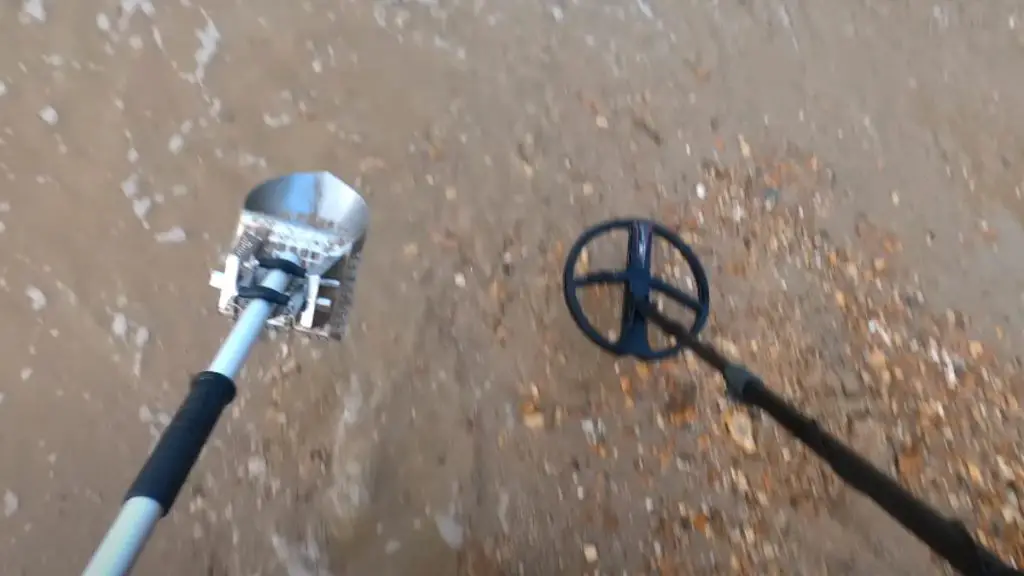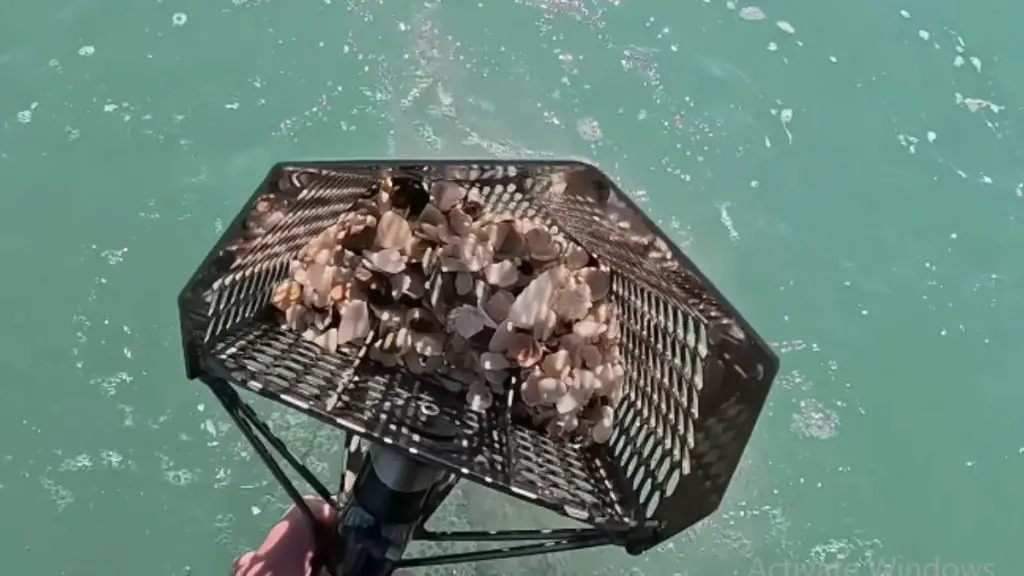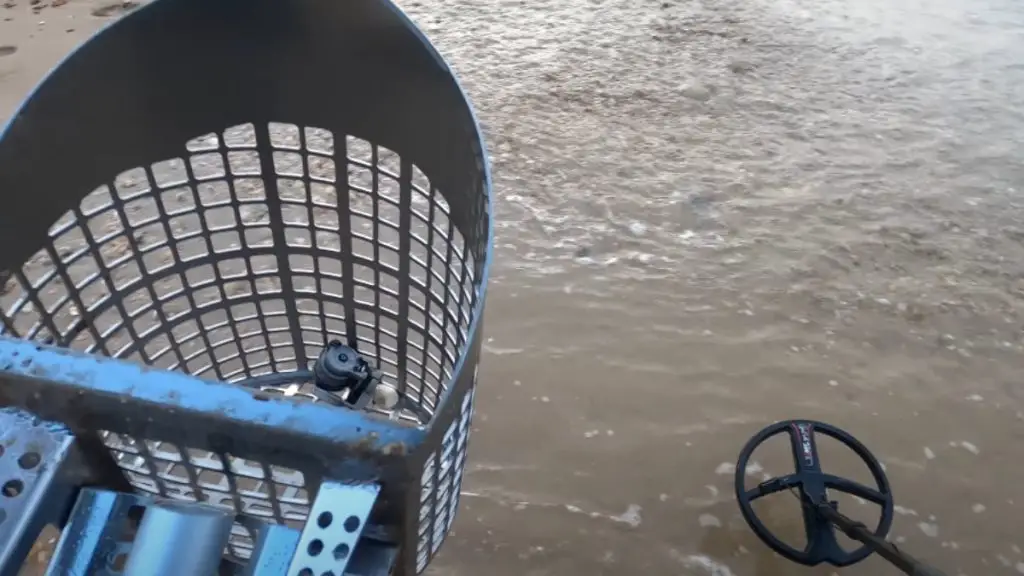Metal detecting can be a fun and exciting hobby, especially in Virginia. This state has a lot of history, from old Civil War battlefields to early American settlements.
People who use metal detectors in Virginia have a good chance of finding interesting things hidden in the ground.
In this article, we’ll discover the best places, clubs for metal detection and much more to start metal detecting in Virginia.
Let’s begin!
Metal Detecting In Virginia

Metal detecting in Virginia can be a fun and rewarding hobby because of the state’s rich history and many places to explore.
Virginia was an important area during many historical events, like the American Civil War, so there are chances to find old coins, buttons, or other artifacts.
Virginia has more than 8 million people, which means there are a lot of parks and public spaces where you might use a metal detector, but always make sure to follow the local laws and get permission if needed.
Some of the best places for metal detecting in Virginia include the beaches along the coast, old battlefields, and historical sites.
Is it legal to metal detect in Virginia?
In Virginia, metal detecting is legal, but there are specific rules you need to follow. Public lands are managed by different agencies, each with its own regulations.
For example, you can metal detect in some state parks with permission, but it’s not allowed in national parks at all due to federal laws protecting historical sites.
If you want to use your metal detector on private property, you have to ask the landowner for permission first.
It’s really important to understand the local laws of the county or city you are in because they can have different rules about metal detecting.
You should also remember to fill any holes you dig and leave the area as you found it.
In historical areas, there might be additional restrictions to preserve heritage, so always check with the local authorities before you start.
Where can you metal detect in Virginia?
Virginia presents a diverse array of locations suitable for metal detecting enthusiasts seeking historical treasures and unique finds.
Here are the best places for metal detection in Virginia:
1. Abandoned Buildings and Structures
Abandoned buildings and structures often contain remnants of past lives, providing ample opportunity for discovery.
Examples include former homes, schools, churches, and industrial complexes scattered throughout the state.
2. Abandoned Parks and Churches
Many abandoned parks and church grounds hold significant historical importance, offering chances to uncover forgotten artifacts.
3. Old Wagon Train Routes and Trails
These paths once served as vital transportation arteries during colonial times, leaving behind traces of human settlement and trade.
4. Natural Disasters Destruction Sites
Areas affected by natural disasters, such as floods and hurricanes, may reveal objects swept away by catastrophic events.
5. Virginia Beaches, Rivers, Lakes, and Creeks
Public beaches, including popular destinations like Virginia Beach and Chincoteague Island, are prime locations for metal detecting.
Moreover, rivers, lakes, and creeks offer access to submerged artifacts.
6. School Yards
Schoolyard metal detecting provides a glimpse into the past, revealing school badges, medallions, and other memorabilia.
7. Civil War Battlefields
While most civil war battlefield sites are off-limits due to preservation efforts, some areas may grant permission upon request.
8. Ghost Towns
Ghost towns present a unique challenge for metal detecting, allowing explorers to delve deep into the mysteries of vanished communities.
9. Natural Disaster Destruction Sites
Natural disaster destruction sites, such as those impacted by flooding or storm surges, may reveal objects washed away by cataclysmic events.
10. Virginia Beaches
Virginia’s extensive coastline features public beaches conducive to metal detecting, although some areas may be restricted.
11. Civilian and Military Areas
Specific sections of Virginia Beach, such as the lighthouse, civilian beach, and military beach, are off-limits to metal detectorists.
12. National Forests
National forests in Virginia allow metal detecting, provided that national forest regulations are followed.
13. State Parks
State parks in Virginia permit metal detecting on designated man-made beaches with a Department of Conservation and Recreation (DCR) special use permit.
14. Underwater Exploration
Underwater exploration requires a permit issued by the Virginia Marine Resources Commission for the removal of artifacts from riverbeds, Chesapeake Bay, and Atlantic coastal zones.
Is there any buried treasure in Virginia?
While there isn’t solid evidence for buried treasure in the way of pirate stashes or chests of gold coins, Virginia has a rich history that could suggest hidden treasures.
The state was a significant site during the Civil War, and stories have circulated about soldiers burying their possessions for safekeeping.
Moreover, Thomas Beale is said to have buried a treasure in Bedford County in the 1820s, which has never been found.
However, treasure hunting should be done responsibly and legally, respecting private property and laws regarding historical artifacts and sites.
Metal detecting clubs in Virginia
These are the best clubs in Virginia:
1. Central Virginia Historical Recovery
Location: Central Virginia
This Club is a group dedicated to metal detecting enthusiasts who share a passion for uncovering hidden treasures that tell stories of the region’s past.
As one of the metal detecting clubs in Virginia, this organization provides a community for hobbyists to learn, explore, and preserve historical artifacts with respect and care.
Their activities often lead to exciting discoveries, contributing to the understanding of Virginia’s rich history.
2. Hanover Metal Detectors Club LLC
Location: Ashland
The Hanover Metal Detectors Club LLC is a gathering of enthusiasts in Virginia who share a passion for uncovering historical treasures from the Civil War era.
Established in 2006, this club regularly brings its members together to discuss their finds, exchange tips, and plan their next metal detecting adventure.
Their meetings are a chance for both seasoned and novice detectors to learn from each other and deepen their appreciation for history.
3. Northern Virginia Relic Hunters Association
Location: Clifton
This club is a great place for people in Northern Virginia who want to find old things buried in the ground, like coins and historical relics.
Members of the NVRHA often meet to share stories, tips, and to go out searching for treasures together.
It’s a community where beginners can learn from experienced metal detectorists, making it easier for anyone to start this interesting hobby.
4. Hampton Roads Recovery Society
Location: Hampton
Website: Hampton Roads Recovery Society
This community brings together individuals who share a passion for uncovering hidden treasures buried beneath the ground.
Members of the society often meet to explore local beaches, parks, and historical sites with their metal detectors, searching for relics, coins, and jewelry.
It’s a friendly group where beginners can learn from more experienced metal detectorists, and all can enjoy the thrill of discovery together.
5. Roanoke Coin & Relic Club
Location: Roanoke
This club is great for anyone interested in history, metal detecting, and joining a group of friendly people who share a common hobby.
7. Rapidan River Relic Hunters Association
Location: Unionvill
They enjoy exploring areas around the Rapidan River and beyond in search of historical artifacts and hidden treasures.
This club is a place for both beginners and experienced metal detectorists to learn, share tips, and embark on adventures together.
As the last on our list of Virginia metal detecting clubs, they represent a community keen on preserving history and the thrill of discovery.
You can also find our guide on metal detection In Alabama, In Tennessee, metal detection In North Carolina, and In South Carolina; for successful hunt.
Virginia Parks for Metal Detection
Here is the list of parks for metal detention in Virginia:
| Park Name | Metal Detecting Policy |
| Bear Creek Lake (BC) | Contact Park |
| Belle Isle (BI) | Contact Park |
| Breaks Interstate (BK) | Not Managed by DCR |
| Caledon (CA) | Contact Park |
| Chippokes Plantation (CP) | Contact Park |
| Claytor Lake (CL) | Contact Park |
| Clinch River (CR) | Under Development |
| Douthat (DO) | Contact Park |
| Fairy Stone (FS) | Contact Park |
| False Cape (FC) | Contact Park |
| First Landing (FL) | Contact Park |
| Grayson Highlands (GH) | Contact Park |
| High Bridge Trail (HB) | Contact Park |
| Holliday Lake (HL) | Contact Park |
| Hungry Mother (HM) | Contact Park |
| James River (JR) | Contact Park |
| Kiptopeke (KP) | Contact Park |
| Lake Anna (LA) | Contact Park |
| Leesylvania (LE) | Contact Park |
| Machicomoco (MA) | Contact Park |
| Mason Neck (MN) | Contact Park |
| Natural Bridge (NB) | Contact Park |
| Natural Tunnel (NT) | Contact Park |
| New River Trail (NR) | Contact Park |
| Occoneechee (OC) | Contact Park |
| Pocahontas (PO) | Contact Park |
| Powhatan (PW) | Contact Park |
| Sailor’s Creek Battlefield Historic (SC) | Contact Park |
| Seven Bends (SE) | Contact Park |
| Shenandoah River (SH) | Contact Park |
| Shot Tower (ST) | Contact Park |
| Sky Meadows (SK) | Contact Park |
| Smith Mountain Lake (SM) | Contact Park |
| Southwest Virginia Museum Historical (SW) | Contact Park |
| Staunton River (SR) | Contact Park |
| Staunton River Battlefield (SB) | Contact Park |
| Sweet Run (SN) | Contact Park |
| Twin Lakes (TL) | Contact Park |
| Westmoreland (WE) | Contact Park |
| Widewater (WW) | Contact Park |
| Wilderness Road (WR) | Contact Park |
| York River (YR) | Contact Park |

Frederick Perez is the founder of Scrape Dude. He loves exploring and finding hidden treasures in unexpected places. Frederick has been dumpster diving and gold panning for years, turning his hobby into our website to share his adventures. He’s known for his friendly advice and exciting stories, inspiring others to discover the joy in these unique hobbies. His expertise makes Scrape Dude a trusted and fun place to learn and explore.


